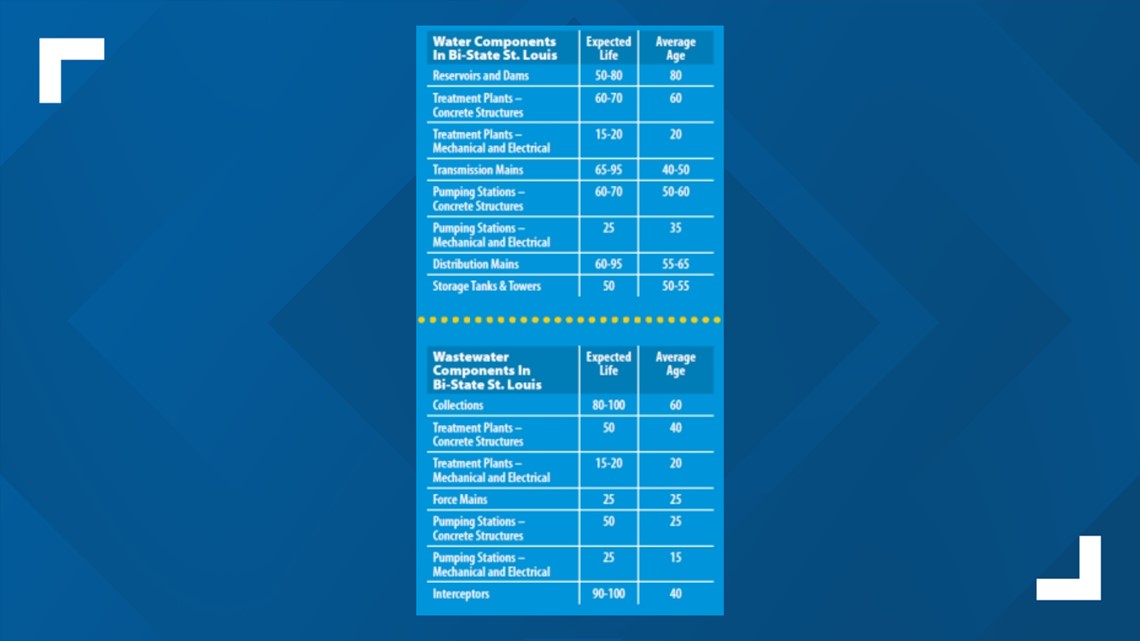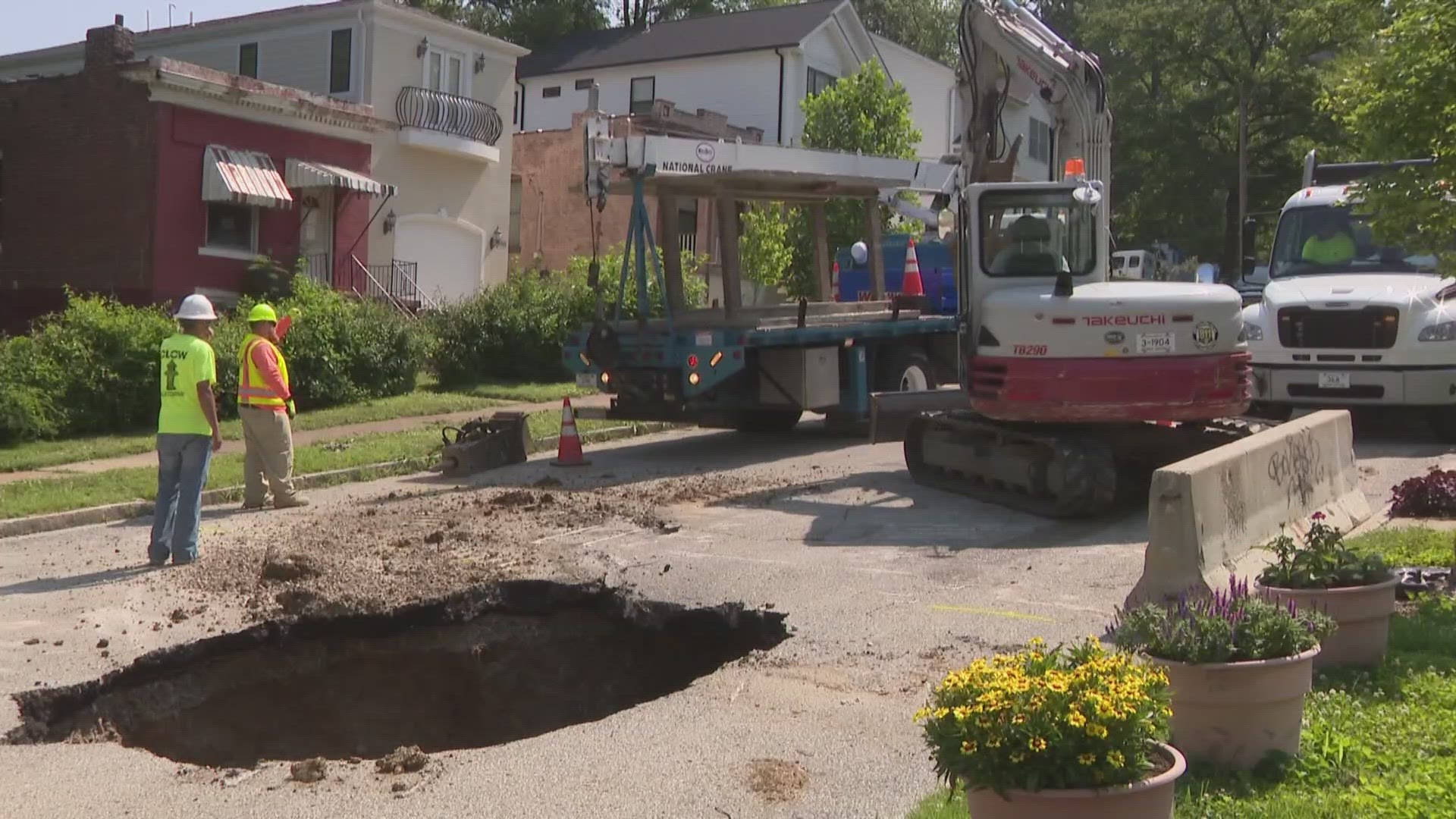ST. LOUIS — A pipe suddenly bursts, a road quickly floods and people's drinking water is temporarily contaminated.
The story was familiar throughout St. Louis in 2023 as multiple serious water main breaks made headlines, including a break that shut down Interstate 64 on May 12, a break that caused a boil order for thousands in south city areas on June 9, and a break that caused a sinkhole in the Dogtown neighborhood on June 20. Breaks continue to be an issue as temperatures fluctuate throughout January.
The high-profile nature of water main breaks thrust St. Louis' water infrastructure into the spotlight, with even St. Louis Director of Public Utilities Curt Skouby previously saying the entire system is "on the brink."
But were 2023's prolific water main breaks out of the ordinary for St. Louis? We dug into the data to VERIFY the claim.
The claim
Did St. Louis see more water main breaks in 2023 than ever before?
Our sources
- City of St. Louis Mayor's Office
- St. Louis Director of Public Utilities Curt Skouby
- Metro Water Infrastructure Partnership
The answer
No, St. Louis has not seen an abnormal number of water main breaks in 2023. In fact, multiple previous years had many more breaks.
What we found:
While 2023's water main breaks happened in very high-profile areas, the amount of breaks the city has identified is not any more than in previous years.
Data provided by the St. Louis Mayor's Office shows the amount of water main breaks that happened within city limits since 2005:
- 2005: 380
- 2006: 352
- 2007: 515
- 2008: 339
- 2009: 325
- 2010: 387
- 2011: 352
- 2012: 425
- 2013: 460
- 2014: 531
- 2015: 414
- 2016: 470
- 2017: 502
- 2018: 525
- 2019: 304
- 2020: 323
- 2021: 353
- 2022: 389
- 2023: 359
The number of water main breaks the city saw in 2023 came close to previous years but is much lower than the breaks seen in years like 2007, 2014 and 2018.
Skouby, who has worked on the city's water division for just under 40 years, told 5 On Your Side that water main breaks are inevitable, but the city's Department of Public Utilities uses water main breaks to identify what areas throughout St. Louis need updating.
"A lot of water main breaks are random and unpredictable," he said in an interview with 5 On Your Side. "Some of them you can prevent by paying attention to your problem locations and the condition of the pipes when you expose them... We use the opportunity every time we expose the pipe to see what the condition is at that location."
Data from 2011 compiled by the now-disbanded Metro Water Infrastructure Partnership, which Skouby was also a member of, estimated numerous parts of the Bi-state's water infrastructure was set to exceed its lifespan by 2021. The sharp increase in water main breaks seen between 2012 and 2018 may be a direct result of that aging infrastructure.


Another reason St. Louis' water main breaks had a larger spotlight on them in 2023 compared to years past may be due to a proposed water rate hike that was also debated this summer. The historic 44% water rate increase was passed by the city's board of aldermen on June 16, but some argued the increase was too much too fast.
"You talk about the need to raise water rates to address the aging infrastructure and you're catching people off guard like deer in the headlights," Skouby said. "They don't get rid of that thought. The things that have changed now is that people, I think, have a better awareness and understanding that the infrastructure, whether it's water or wastewater, is an important asset that the community has that needs investment in."
PREVIOUS COVERAGE:
Top St. Louis headline
Get the latest news and details throughout the St. Louis area from 5 On Your Side broadcasts here.

